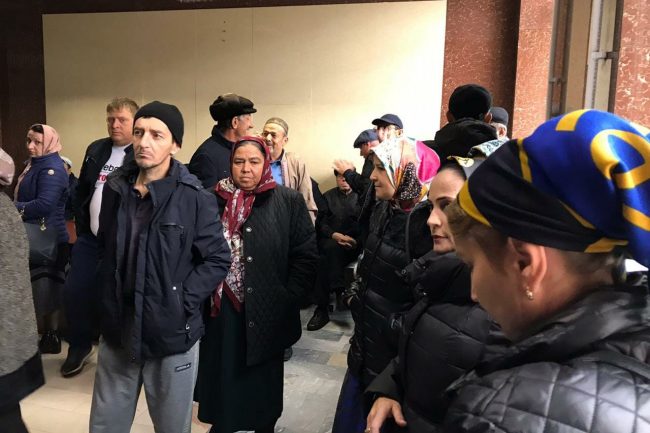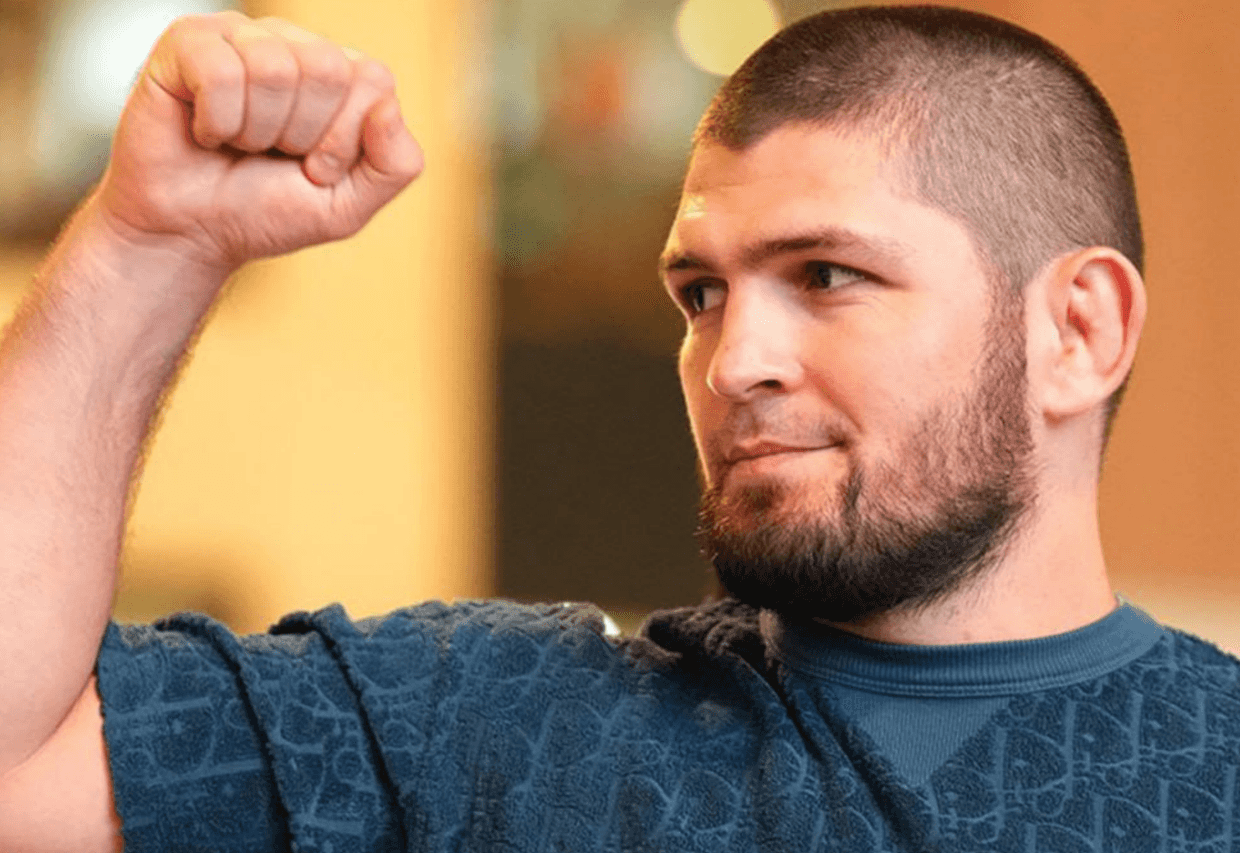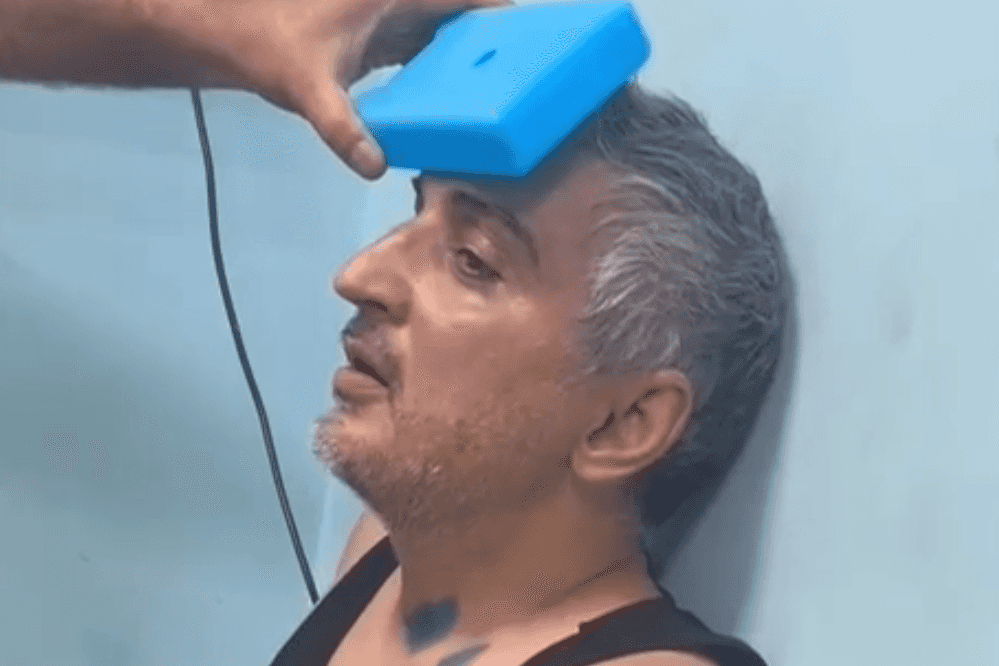

Dialysis patients in the Russian Republic of Daghestan protested on Monday against a decision to transfer them from a private clinic to state medical institutions.
Around 60 patients suffering from kidney failure gathered outside the Ministry of Health in the republic’s capital, Makhachkala, arguing that the state facilities were not fit for purpose.
Patients receiving treatment at the Everest Hemodialysis Centre said they were informed they would be transferred to state institutions on 7 November.
Dialysis is a method of cleansing blood for patients with acute and chronic kidney failure.
Protesters told OC Media that they had met with Deputy Minister of Health Feyzulakh Gabibulayev in the ministry building and told him that by law, patients have the right to choose their medical institution and doctor.
They said he had responded that they could ‘complain anywhere they want’, because ‘everything has been decided and your opinion will not be taken into account’.
That evening, protesters met with the Minister of Health, Dzhamaludin Gadzhiibragimov.
‘Of course, you have a choice and it’s you who decide where to go for treatment, whether it is a private clinic or a state hospital’, the ministry’s website cites Gadzhiibragimov as saying.
‘But, it’s unacceptable to use the misfortune of others for one’s own selfish interests’, Gadzhiibragimov said, without specifying who he was referring to.
‘In state medical institutions, the quality of medical care will be no worse than in the private sector’ he said.
A spokesperson for the ministry told OC Media that Daghestan’s Compulsory Medical Insurance Fund made the decision to transfer the patients after reducing funding for private sector clinics.
The fund, which is financed from the state budget, finances medical services to Russian citizens.
The head of the Daghestani fund’s financial and economic department, Dzhavgarat Akhmedova, denied to OC Media that they had made the decision.
According to Akhmedova, a commission under the ministry decided to assign patients to state clinics, after which the fund redistributed funding accordingly. She said had not seen any documentation on the redistribution of patients from the Everest centre.
‘Hope for life’
One of the protesting patients, Sevriyat Magomedova, told OC Media that before the Everest centre opened in 2015, patients suffering from kidney failure underwent dialysis in public hospitals. She said that due to old and outdated equipment, the process caused severe pain.
Magomedova said patients were forced to stand in line for several hours as the hospitals in Makhachkala served residents of the whole republic.
‘Many come from the districts and other cities […] The private centre provided patients with free transport.’
Magomedarip Akhmed, another patient suffering from kidney failure, told OC Media that when the Everest Centre opened, ‘we gained a hope for life’.
He said that when undergoing the procedure in a state hospital prior to this, he was told he was ‘almost dead’.
‘Hemodialysis is painless with modern equipment, and after it’s finished we can move around independently. But before, relatives had to lift us from our chairs and carry us to their cars’, Akhmed said.
A spokesman for the ministry told OC Media that a new dialysis ward had been opened at the Republican Clinical Hospital and that there were plans to expand the unit in the new year.
‘Struggle for patients’
The Everest Centre opened in Makhachkala in December 2015 with a stated capacity to treat 250 patients.
Dialysis is free of charge for patients in Russia, paid for by the Compulsory Insurance Fund. The Everest centre is included in the compulsory health insurance system.
Elmira Bakrieva, head of the drug monitoring department at Daghestan’s Compulsory Insurance Fund, told OC Media that the current situation was caused by a struggle by medical institutions to get more patients.
According to Bakriyeva, the fund had been seeking to gradually reduce what it pays for dialysis, which it considered too high compared with the costs of carrying out the procedure.
Bakriyeva said the Everest Centre was connected with former chairman of the government of Daghestan, Abdusamad Gamidov, and that it was included in the compulsory health insurance system when he was in power despite ‘many questions’.
Bakriyeva claimed that doctors were unnecessarily prescribing dialysis for patients ‘for profit’. She said that every year the number of dialysis patients in Daghestan increased by 100 people.
The head physician at the Everest Centre, Patimat Gadzhiyeva, who also manages the dialysis unit at the state-run Republican Clinical Hospital, told OC Media that ‘no normal person would agree to hemodialysis if there was no need for it’.
‘Prescribing this procedure requires the consent of a three-doctor commission and the patient’s relatives’, said Gadzhiyeva.
According to her, an increase in the number of dialysis patients has been observed not only in Daghestan but globally. She said 560 patients were currently undergoing the procedure in Daghestan.







